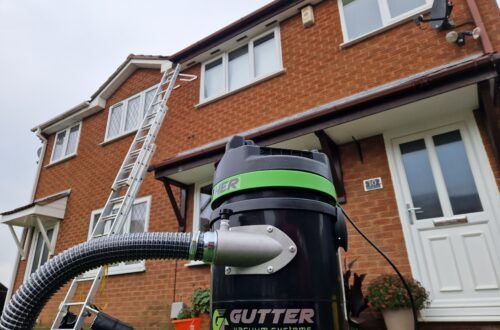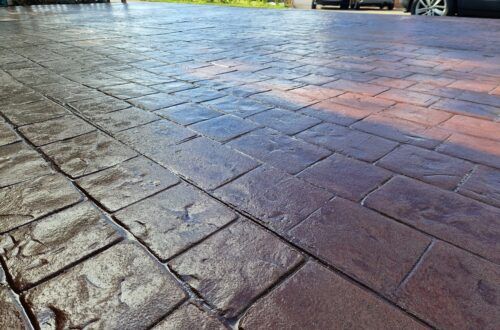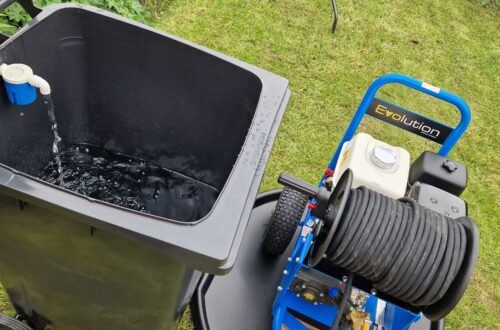Choosing the Right Generator for Gutter Vacuum Systems: What You Need to Know
Introduction
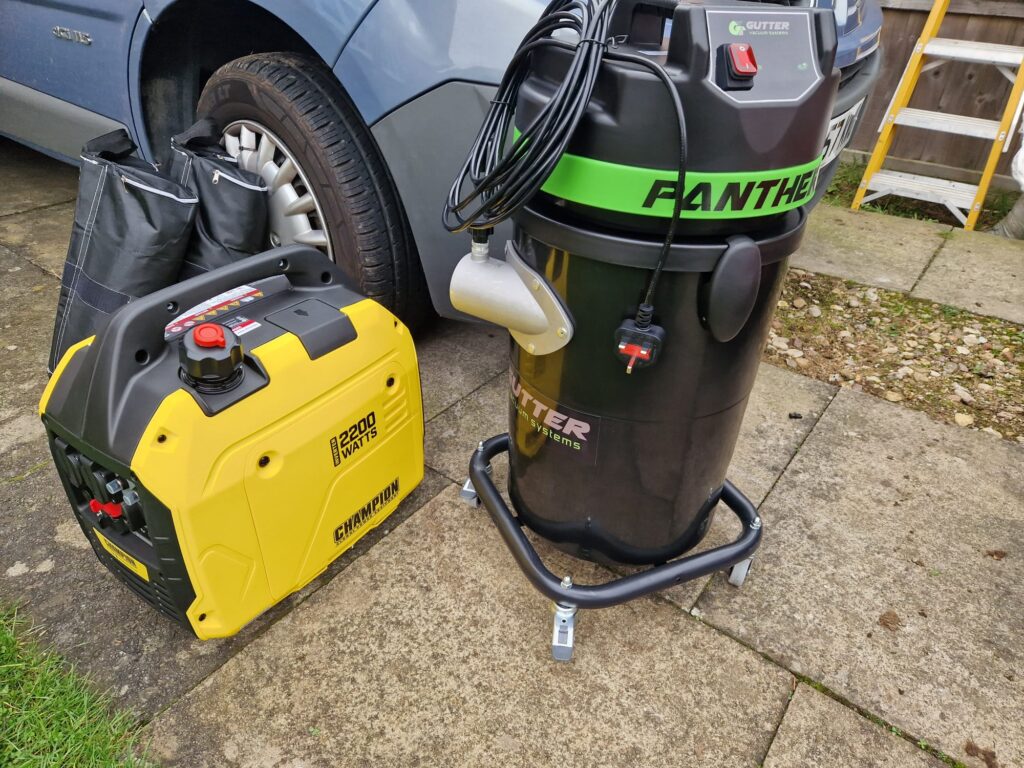
Gutter vacuums are an essential piece of kit if you ask me. Having one makes all the difference for a whole host of reasons, but one debate I’ve seen pop up a lot is whether it’s worth using a generator to power one.
As you may know, small gutter vacs like my 1700W Panther setup from GVS can run on a standard 230V, meaning they can be powered directly from a home supply. However, having a generator gives me access to another reliable power source, which is ideal when working in areas without easy access to mains electricity.
So, is it worth the investment? Let’s break it down and settle the debate once and for all.
Why Do You Need a Generator for Gutter Vac Equipment?
In reality, I don’t think generators are 100% necessary for running a small gutter vac. Here’s why.
Most homes these days have some sort of outdoor power supply, and for those that don’t, there’s always the option of using an extension lead to connect to an indoor socket. This is usually the most logical and cost-effective solution.
That said, while most customers are happy to let you use their electricity, some even offering before you ask, not everyone is comfortable with it. Some homeowners assume you’ll come fully equipped without needing their power, which is fair enough. In these cases, having a generator not only makes you look more professional but also allows you to complete jobs independently, even when the customer isn’t home.
So, while a generator isn’t a must-have for everyone and isn’t 100% essential all the time, it can be a valuable asset for those who want complete flexibility. It all comes down to how you prefer to work and the types of jobs you take on.
Pros of Using a Generator for Gutter Vac Equipment
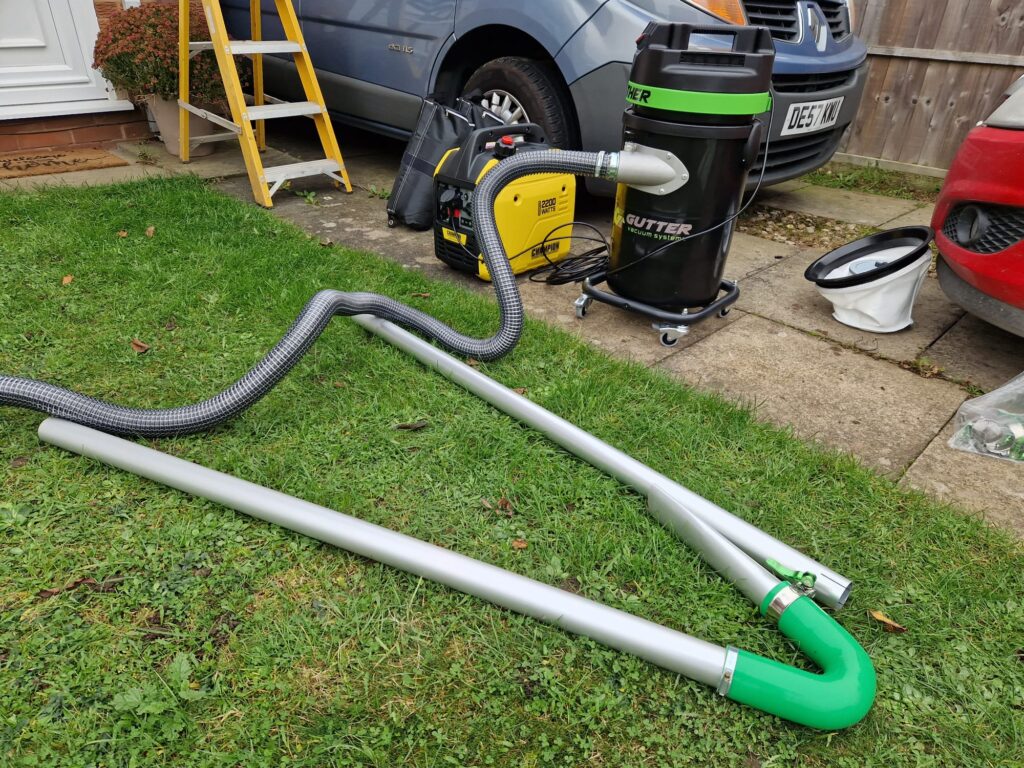
Why I Use a Generator for My Gutter Vac
One of the biggest advantages of having a generator is that you can work from anywhere without worrying about power access. You no longer have to rely on the customers’ sockets or drag long extension leads around, it gives you complete freedom to get the job done on your own terms.
Personally, I run a small gutter vac, so I only need a compact 2200W generator. It weighs about 17kg, making it easy to carry to and from job sites, and it fits neatly in my van without taking up much space. For me, it’s a simple and practical solution that keeps me fully independent, professional, and prepared for any job, no matter where it is.
Why a Generator is Handy—Even if You Don’t Use it Often
Even if you don’t use a generator all the time, it’s one of those things that always comes in handy when you least expect it. If you ever run into power issues on-site, whether it’s a lack of access or an unexpected outage, having a generator as a backup keeps you working without unnecessary delays.
Another bonus is that many generators come with additional ports, including 12V, USB, and multiple plug sockets. This means you’re not just limited to running your gutter vac, you can also charge other equipment while on-site. Personally, I’ve used mine to charge my WFP backpack when it ran out mid-job, and it’s been a lifesaver more times than I can count.
Added Benefit
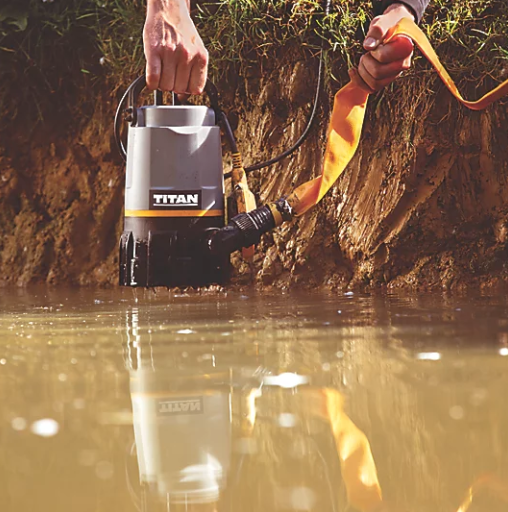
A great alternative use for a generator is powering a water pump when pressure washing driveways. If you run into flooding issues due to bad drainage, you can quickly set up a pump to remove excess water and keep the job moving smoothly.
Looking Professional & Prepared with Your Own Power Source
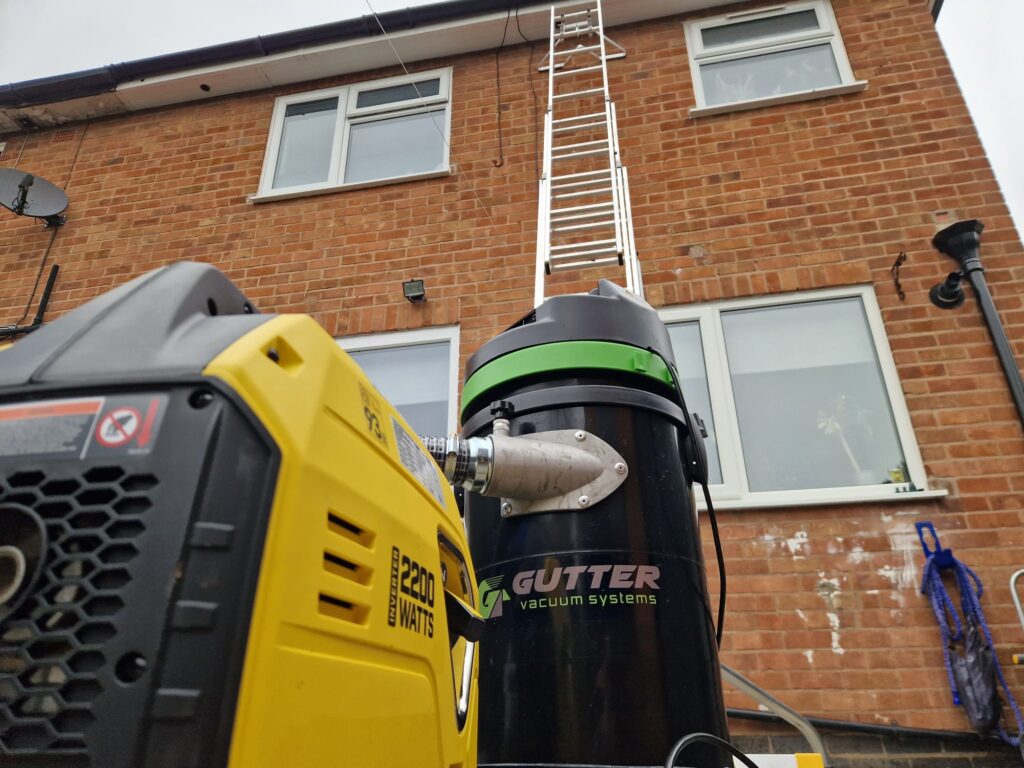
I think most people would agree that having your own power source makes you look more prepared and professional in front of customers. It might not always be a massive deal, but for me, it definitely is.
As I mentioned before, most customers won’t think twice about letting you use their power, but having a generator as an alternative just looks better. It shows that you’re self-sufficient and fully equipped to handle the job without relying on anyone else. Even if you don’t need it all the time, it’s reassuring to have it there, both for yourself and for your customers.
At the end of the day, professionalism isn’t just about doing a good job, it’s about how you present yourself and your business. And having your own power source is just another way to stand out and show that you take your work seriously.
No Noticeable Efficiency Difference Between Mains & Generator Power
One of my initial concerns when considering a generator was whether it would affect the performance of my 1700W gutter vac compared to using a mains supply. However, after using both power methods, I can confidently say there’s little to no difference in suction power when running the vac off my 2200W generator.
The vac runs just as effectively, and I haven’t noticed any drop in performance. Of course, this may vary with larger setups, but as long as you have the right generator with sufficient wattage, your vac should perform at full capacity without slowing you down on jobs.
If you’re worried about losing power or efficiency, just make sure your generator has at least 20-30% more wattage than your vac requires to ensure a stable supply. If your setup is well-matched, you shouldn’t experience any noticeable drop in performance.
Gutter Cleaning Showdown: Gutter Vacuums vs. Ladder and Bucket – Which Is Better?
Cons of Using a Generator for Gutter Vac Equipment
Noise Levels – Something to Consider
Generators can be loud, and that’s definitely something to keep in mind. My generator isn’t too bad, it’s not much louder than the vac itself—but when you combine the two, the overall noise level could be an issue, especially for early morning jobs.
If you’re working in residential areas, it’s worth considering how the noise might affect customers or nearby residents.
Some high-end generators are designed to run quieter, but they tend to come with a higher price tag. If noise is a concern, positioning the generator a little further away or leaving it in the van with a door open and using a noise-reducing cover can help.
The Cost Factor – Is a Generator Worth the Investment?
As always, equipment comes at a cost. A reasonable one, like the one I have, will set you back around £400, give or take, depending on where you buy it, which is relatively cheap for a generator even of this size. This is definitely still a downside, as it’s another added expense to consider. If you look at the more expensive brands like Honda, a generator like this would cost closer to £1000 or even more.
Running Costs & Maintenance – The Ongoing Considerations
As you’ll be well aware, fuel isn’t free, so running a generator does add extra costs that need to be factored into your pricing. If you’re using it regularly, these costs can add up, so it’s worth considering when quoting for jobs.
Beyond fuel, there’s also the maintenance side of things. Generators need regular upkeep, including oil changes and filter replacements, to keep them running smoothly. While it’s not a massive hassle or a major expense for a generator like the one I have, it is something to keep in mind when deciding whether a generator is the right investment for you.
Size & Space – Choosing the Right Generator for Your Needs
Depending on the size of your generator, space can be a factor to consider. My generator takes up little to no space in my van, but that’s because I only need it to power a 1700W gutter vac. If you’re using a larger vac, you’ll need a generator with enough power to handle it, which obviously means a bigger unit that takes up more room.
Before buying one, it’s worth thinking about how much space you have in your van and whether a larger generator is practical for your setup. If space is tight, looking for a compact but powerful model could be a good balance. At the end of the day, the goal is to have enough power without sacrificing too much storage space for your other equipment. Money and space seems to be always be the main compromises.
Weight – Making Sure You Can Move It Easily
Lastly, there’s the weight factor, relating somewhat to the last section. My generator is only about 17kg, so it’s easy to lift in and out of the van and move around on-site. But if you’re using a larger, more powerful generator, this can become a challenge, especially if you need to take it out of the van regularly.
If you’re going for a bigger model, it’s a good idea to have a Plan B for moving it safely. A trolley or sack truck can make life much easier, or getting one with wheels on the frame would be even better, and if the generator is really heavy, van ramps are worth considering too. The last thing you want is to injure yourself or struggle with lifting every time you need to take it off the van, especially if you work alone like I do.
Power Output – Making Sure You Have Enough Power
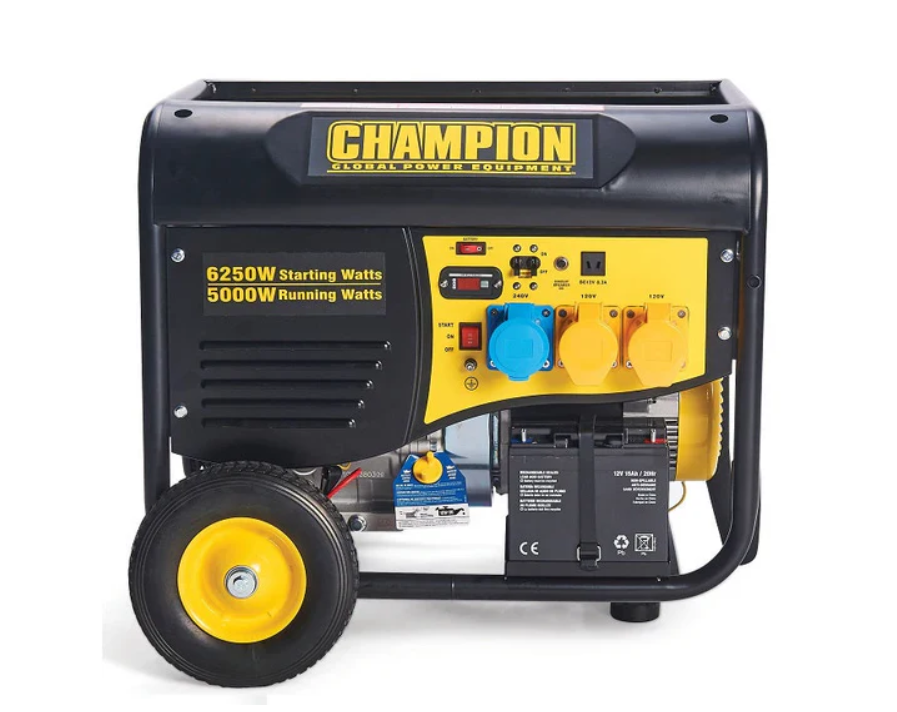
Using GVS as an example, their largest gutter vacuum, the Predator Gutter Vacuum, can be plugged into a mains power supply. This model has three 1,200W motors, adding up to a total of 3,600W.
With such a high power requirement, it’s crucial to ensure the mains supply can handle the load before plugging it in. Not all power sources will be suitable, especially on older properties or sites with limited electrical capacity.
GVS also recommends that if you use a generator to power this vac, it should have a minimum output of 5.5kVA. This ensures the vacuum runs efficiently without overloading the generator.
If I were running a large 3-motor gutter vac, I would 100% invest in a generator to guarantee a consistent and sufficient power supply—especially when working in locations where mains power isn’t always reliable. With a properly matched generator, you don’t have to worry about power drop-offs or interruptions slowing you down.
GVS Predator Recommendation
If you are using a generator for this machine, we recommend a minimum of 5.5kva and any of our larger generators on our generator page can be found along with our recommended 2.5mm extension cables
What to Look for When Choosing a Generator for Gutter Vac Equipment
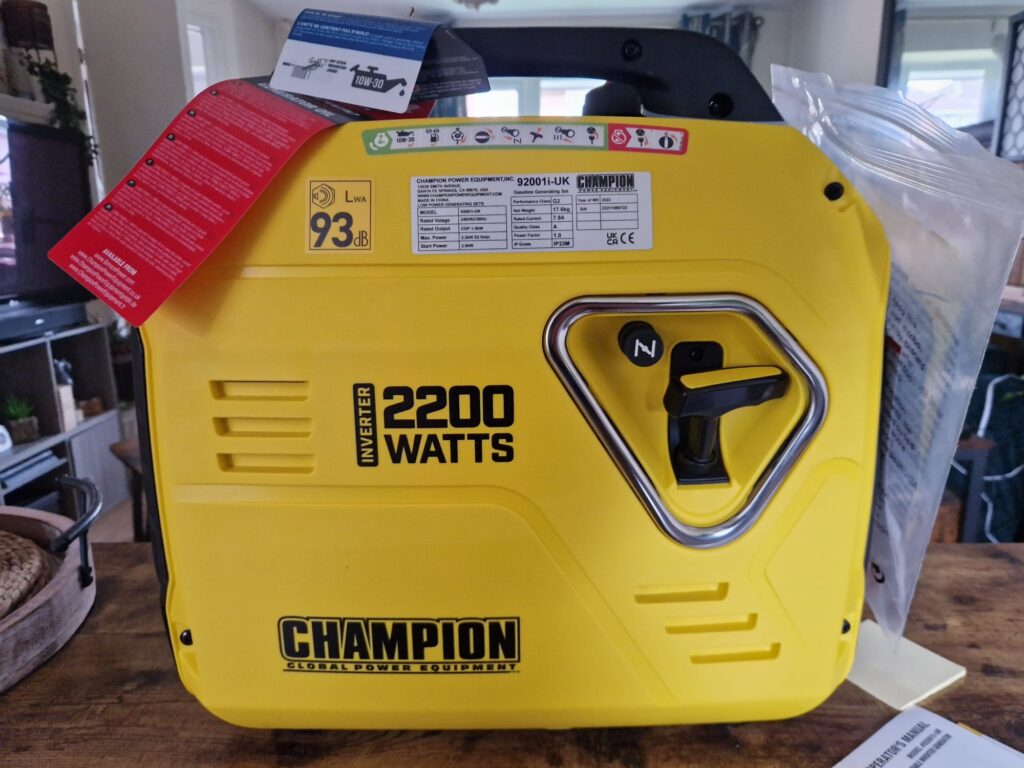
Matching Your Generator to Your Gutter Vac – Avoiding Overload
Before buying a generator, always check that your gutter vac’s wattage fits within the maximum power output of the generator. A key tip here—always go off the rated watts, not the max watts. The max wattage is what the generator can handle for short bursts, but the rated watts tell you what it can consistently supply.
To prevent overload, your generator should have at least 20-30% more wattage than your equipment needs. This extra buffer helps ensure smooth operation and avoids unnecessary strain on the generator.
Petrol Generators – The Most Practical Choice for Gutter Vacs?
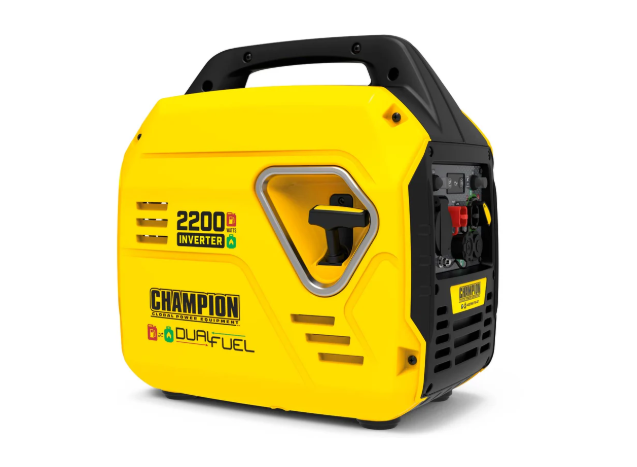
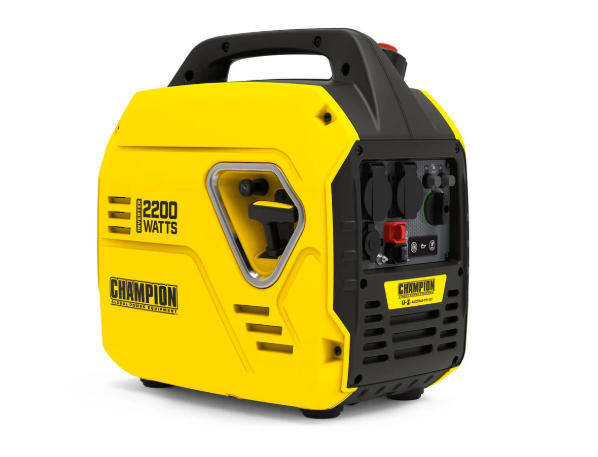
When it comes to powering a gutter vac, petrol-powered generators are the most commonly used option. If I’m honest, I haven’t had much experience with anything other than petrol generators, but they’ve always done the job reliably for me.
You can get the generator I use in a dual-fuel option, meaning it can run on either petrol or propane. While this adds some flexibility, it does come at an extra cost—around £100 more for the dual-fuel version.
For my setup, I’ve stuck with petrol simply because it’s cheaper upfront and widely available. But if you like the idea of having an alternative fuel option, dual-fuel models could be worth considering, especially if you want to take advantage of potential fuel savings or reduce emissions.
Petrol generators are generally cheaper upfront, which is why most people go for them. They’re widely available, easy to use, and usually provide more than enough power for gutter vacuums.
Diesel generators do have some advantages, such as being quieter (depending on the model) and more fuel-efficient over long periods of continuous use. However, finding a small diesel generator at a price comparable to a petrol one can be a real challenge. Most diesel models tend to be larger, heavier, and more expensive, making them less practical for most gutter cleaning businesses.
For most people, a petrol generator will do the job just fine. If you’re working long hours every day on large-scale jobs, a diesel one might be worth considering, but for general use, petrol remains the best balance of affordability, power, and convenience.
Durability & Weather Resistance
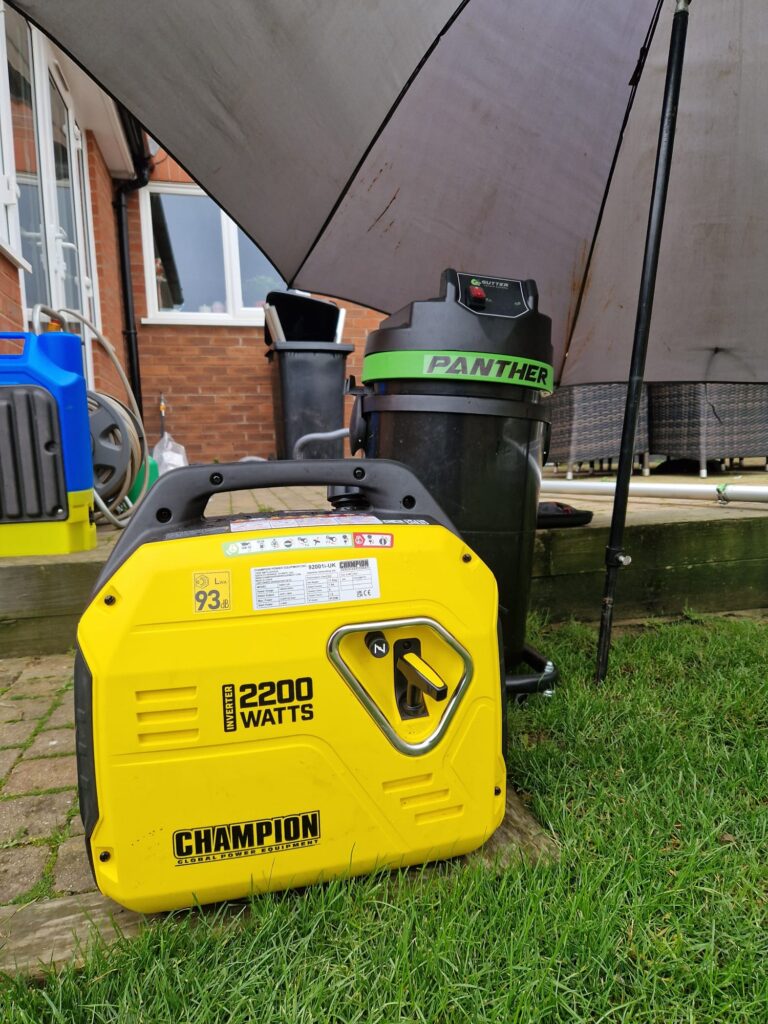
The Champion 2200W “Mighty Atom” Petrol Inverter Generator that I use has a plastic casing, which makes it somewhat water-resistant. Because the components are fully encased, I’ve been using it in the rain without any issues. That said, I always take precautions where possible. If the weather is really bad, I sometimes use a fishing umbrella to cover both the vac and the generator.
Regardless of the generator you have, it’s a good idea to keep some form of cover handy. A simple brolly, can go a long way in preventing water ingress and protecting your equipment from long-term damage. While many generators can handle a bit of rain, it’s always better to be safe than sorry!
Features – What’s Worth Paying For?
The features you get on a generator will depend on how much you’re willing to spend, and while some extras can be useful, others are more of a luxury than a necessity.
One big selling point for some people is an electric start, but personally, I see this as more of a novelty than a must-have. Since you’ll likely only be starting the generator once or twice a day at the most, a manual pull-start isn’t much of a hassle.
The one feature I’d definitely prioritise is an extra power outlet. Having an additional socket is handy in case you need to charge something while working—like a WFP backpack or other tools. Other features, such as fuel gauges, eco-modes, or remote start, are nice to have, but they aren’t essential for day to day use.
Keeping Your Generator in Top Condition – Simple Maintenance Tips
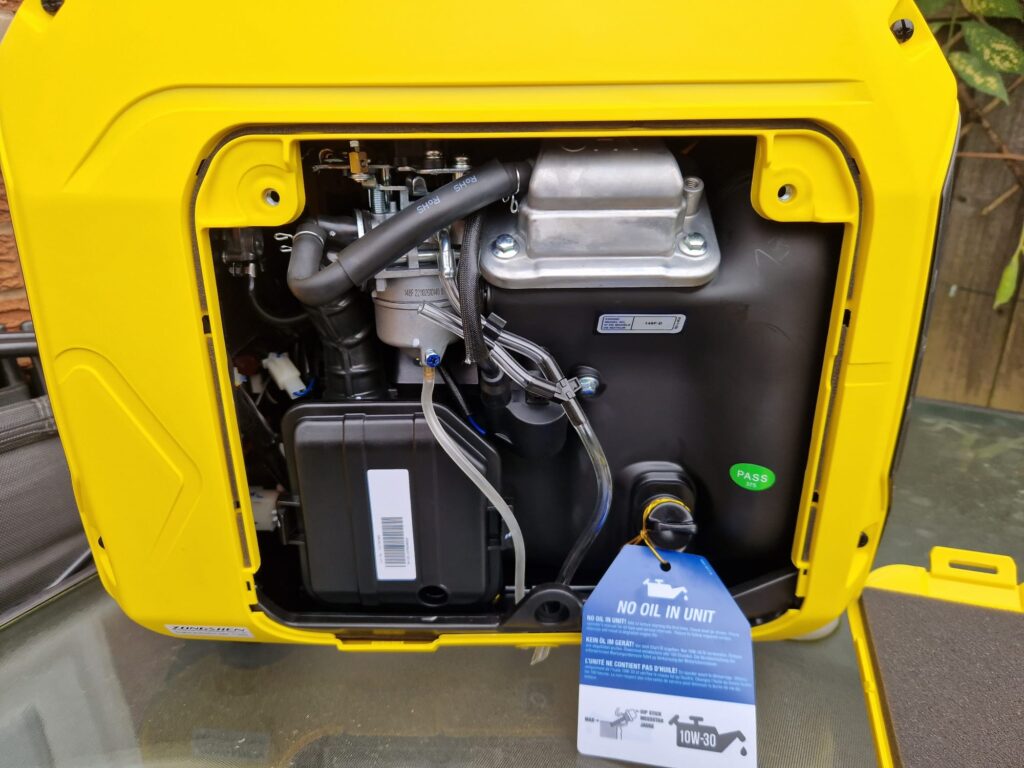
To get the most out of your generator and ensure it stays in top working condition, regular maintenance is key. Just like with other bits of kit like pressure washers and gutter vacs. Here are some simple but important steps to follow:
Check Oil & Filters Regularly – Keep an eye on the oil level and change it when needed. Also, clean or replace air filters to ensure smooth operation. Always carry a small bottle of oil in the van for quick top-ups when needed. This saves you from running into issues on-site.
Run It At Least Once a Month, Even if you’re not using it regularly. Running the generator for a few minutes each month helps keep the engine lubricated and prevents starting problems. That said, you’ll probably find other uses for the generator outside of exterior cleaning, so keeping it in use shouldn’t be much of an issue.
Store It in a Dry, Ventilated Area. Moisture can cause rust and damage over time, so keeping your generator dry and well-ventilated is essential. I cover mine in the back of the van with a towel, which seems to prevent condensation in the colder months.
A little bit of care goes a long way in avoiding breakdowns and costly repairs, making sure your generator is always ready when you need it.
Conclusion: Is a Generator Worth It for Gutter Vac Equipment?
In the end, whether you need a generator for your gutter vacuum setup depends on how you like to work and the jobs you take on. If you always have easy access to mains power, then a generator might not be a priority. But if you want full independence, avoid relying on customers’ electricity, or work in areas where power access is an issue, having a generator is probably the way to go.
The key is choosing the right one, ensuring it has enough power for your vac, fits in your van, and isn’t too heavy to move around. While there are downsides, like cost, noise, and maintenance, the benefits of convenience, professionalism, and flexibility often outweigh them.
Exterior Cleaning, England, South Yorkshire UK



